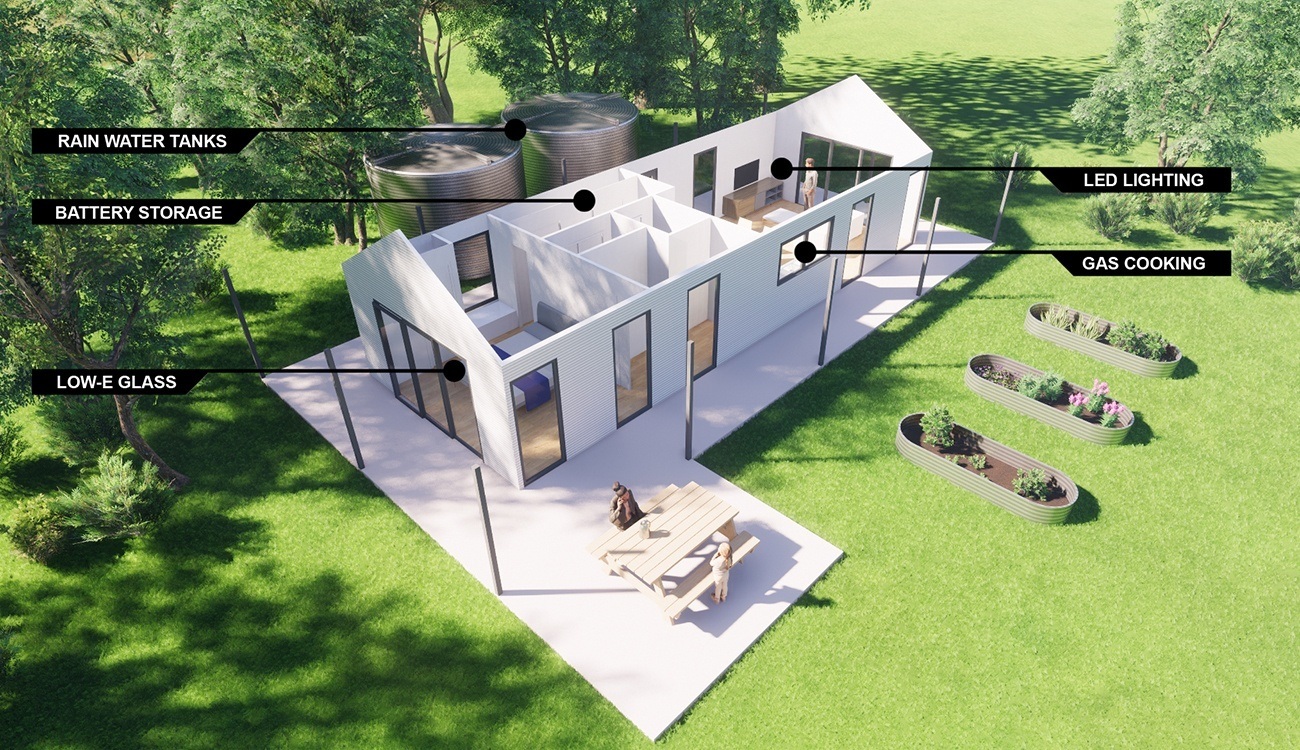Off grid living Facebook groups represent a vibrant online community, a digital nexus where individuals seeking self-sufficiency connect, share experiences, and overcome challenges. These groups offer a diverse range of focuses, from solar power setups and sustainable farming techniques to the intricacies of tiny home construction and water harvesting strategies. The level of engagement varies widely depending on the group’s specific niche and the activity of its members, creating a dynamic ecosystem of information exchange and mutual support.
The content shared within these groups is equally diverse, encompassing detailed project updates, troubleshooting advice, product reviews, and discussions on the philosophical underpinnings of off-grid living. Members frequently seek and provide mentorship, fostering a collaborative environment where both novice and experienced off-gridders can learn from one another. This constant exchange of information helps dispel misconceptions and romanticized notions often associated with this lifestyle, grounding the discussion in the practical realities of sustainable living.
Facebook Groups Dedicated to Off-Grid Living
The rise of off-grid living has fostered a vibrant online community, with Facebook groups serving as central hubs for information sharing, support, and connection among enthusiasts. These groups offer a diverse range of perspectives and expertise, catering to various aspects of self-sufficient living. Their collective knowledge base is a valuable resource for both aspiring and experienced off-gridders.
Diversity of Off-Grid Living Facebook Groups, Off grid living facebook
Off-grid living encompasses a broad spectrum of lifestyles and approaches. This diversity is reflected in the specialized focus of numerous Facebook groups. Some groups concentrate on specific technologies, such as solar power systems or water harvesting techniques. Others focus on particular aspects of sustainable living, including permaculture gardening, livestock management, or building tiny homes. Still others provide a more general platform for discussing all facets of off-grid living, offering a broader range of topics and perspectives.
The resulting ecosystem of groups allows individuals to connect with others who share their specific interests and needs.
Engagement and Activity Levels Across Groups
The level of engagement and activity varies significantly across different off-grid Facebook groups. Larger, more general groups often see a higher volume of posts, comments, and interactions, but can sometimes suffer from a lower signal-to-noise ratio. Smaller, niche groups dedicated to specific topics, such as building cob ovens or raising chickens off-grid, tend to exhibit higher levels of focused discussion and more personalized support.
The frequency of new posts, the responsiveness of group administrators, and the overall vibrancy of discussions are all key indicators of a group’s activity level. Highly active groups often feature daily or even hourly updates, while less active groups might see only a few posts per week.
Commonly Shared Content
The content shared within these groups is remarkably diverse, reflecting the multifaceted nature of off-grid living. Project updates are commonplace, with members regularly sharing photos and progress reports on their ongoing construction projects, garden developments, or renewable energy installations. Advice requests are frequent, as members seek guidance on specific technical challenges, resource management strategies, or regulatory compliance issues. Product reviews, both positive and negative, provide valuable insights into the effectiveness and reliability of various tools, equipment, and materials used in off-grid contexts.
Discussions about best practices, sustainable living strategies, and emergency preparedness are also prevalent. The sharing of resources, such as plans, blueprints, and instructional videos, further enhances the collaborative nature of these online communities.
Characteristics of Prominent Off-Grid Living Facebook Groups
The following table summarizes the characteristics of five prominent off-grid living Facebook groups, highlighting their focus, membership size, and activity level. Note that member counts and activity levels are dynamic and subject to change.
| Group Name | Focus | Member Count (Approximate) | Activity Level |
|---|---|---|---|
| Off-Grid Living | General Off-Grid Living | 50,000+ | High |
| Sustainable Homesteading | Sustainable Farming & Homesteading | 25,000+ | Medium-High |
| DIY Solar Power | Solar Energy Systems | 10,000+ | Medium |
| Tiny House Community | Tiny House Design & Construction | 15,000+ | High |
| Off-Grid Permaculture | Permaculture & Off-Grid Gardening | 7,000+ | Medium |
Marketing and Product Promotion on Off-Grid Living Facebook Groups: Off Grid Living Facebook

Off-grid living Facebook groups represent a unique and potentially lucrative market for businesses offering sustainable and self-sufficient products and services. These communities are characterized by engaged members actively seeking solutions and advice, creating an environment ripe for targeted marketing, but also requiring a sensitive approach to avoid alienating the community. Understanding the nuances of this market is crucial for successful product promotion.Businesses employ a range of strategies to promote their offerings within these groups, from subtle product mentions within relevant conversations to more overt advertising campaigns.
The success of these strategies varies greatly depending on their alignment with the community’s values and the overall approach taken by the business.
Effective and Ineffective Marketing Approaches
Effective marketing within off-grid Facebook groups centers around building trust and providing value. Successful businesses often participate actively in discussions, offering expert advice and answering questions genuinely, establishing themselves as knowledgeable resources before subtly promoting their products. They often showcase user testimonials and high-quality product photography or videos demonstrating the product’s functionality and durability in off-grid settings. Conversely, ineffective approaches include blatant self-promotion, unsolicited advertising, and ignoring community guidelines.
Spamming the group with irrelevant links or aggressively pushing sales often results in negative feedback and potential bans. Ignoring community questions or concerns also erodes trust and diminishes the brand’s credibility. For example, a company selling solar panels might showcase a user’s successful off-grid solar setup, highlighting the reliability of their panels, rather than simply stating “Buy our solar panels!”.
Conversely, a company posting only links to their website without engaging in the group’s conversations would likely be met with resistance.
Ethical Considerations in Off-Grid Community Marketing
Marketing within off-grid communities demands a strong ethical compass. Transparency and authenticity are paramount. Businesses must avoid misleading claims about their products’ capabilities or durability. Exploiting the trust placed in community members by pushing inferior or overpriced products is unethical and ultimately detrimental to the business’s long-term success. Respecting the community’s values and avoiding aggressive sales tactics are crucial for building lasting relationships.
For instance, a company promoting a water filtration system should clearly state any limitations of the system and avoid exaggerating its capabilities. Promoting a product that is unsustainable or environmentally damaging would likely be met with strong negative feedback and rightly so.
Hypothetical Marketing Campaign: Sustainable Off-Grid Composting Toilet
This campaign targets environmentally conscious individuals and families seeking sustainable off-grid solutions. The target audience includes experienced off-gridders and those new to the lifestyle, all united by a commitment to environmental responsibility and self-sufficiency.The communication strategy would focus on building trust and establishing expertise. The campaign would involve:
- Active participation in relevant Facebook groups, answering questions about composting toilets and sharing relevant information.
- Sharing informative content, such as blog posts or videos, about the benefits of composting toilets and how they contribute to sustainable living.
- Showcasing user testimonials and high-quality images and videos of the toilet in various off-grid settings.
- Offering discounts or promotions to group members, creating a sense of community and appreciation.
- Responding promptly and professionally to all inquiries and addressing any concerns raised by group members.
This approach prioritizes building relationships and fostering trust, ultimately leading to increased brand awareness and sales. It avoids aggressive sales tactics and respects the values of the off-grid community. The campaign would emphasize the long-term benefits of the product, its ease of use, and its positive impact on the environment. The overall tone would be informative, helpful, and supportive, aligning with the ethos of the off-grid community.
Facebook’s influence on the off-grid movement is undeniable. While providing invaluable support and connection, it also presents challenges. The curated nature of online communities can sometimes present a skewed view of reality, potentially leading to unrealistic expectations. Navigating the complexities of marketing and product promotion within these groups requires careful consideration of ethical implications. Ultimately, the success of navigating this digital landscape hinges on a balanced approach, leveraging the benefits of online collaboration while maintaining a critical eye towards the information consumed.
Notice off grid living states for recommendations and other broad suggestions.



